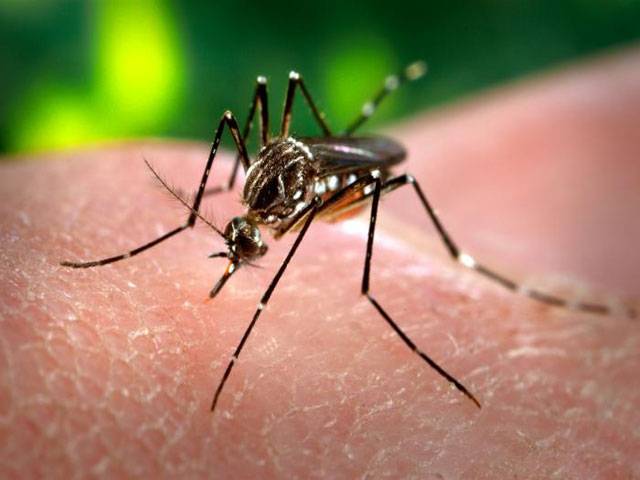ISLAMABAD - There is neither a preventable vaccine, nor is there a treatment that specifically kills the dengue virus. Preventive measures to avoid infection are the only course of action that needs to be focused upon.
This was stated by Riffat Shaheen, Secretary Ministry of Capital Administration and Development, while addressing the inaugural session of a five-day regional dengue workshop held on Tuesday. The workshop has been organized by the Pakistan Atomic Energy Commission (PAEC) in collaboration with International Atomic Energy Agency (IAEA).
The Secretary, speaking on the event, said that the federal government has released funds required for the completion of ongoing projects of health to provinces after the devolution and the provincial governments now cannot make hue and cry about any shortage of financial resources.
She said that there were some foreign funded ongoing health projects at the time of devolution of powers to the provinces after the 18th amendment, but these projects have now been completed.
Riffat Shaheen said that the menace of dengue virus, though not new to this part of the world, has recently taken up enormous magnitude. “There is no preventable vaccine and neither is there a treatment that specifically kills the dengue virus. Preventive measures to avoid infection are the only course of actions that needs to be focused upon. After infection has occurred, platelet infusion and other symptomatic treatment can be given but unfortunately mortality is high”.
The Secretary said that the ministry has constituted a task force to combat the menace of dengue under the chairmanship of the Secretary and comprising all executive directors of hospitals in the Islamabad Capital Territory as well as other stakeholders from the district management of Islamabad.
The Aides Aegypti mosquito is a vector for dengue fever. When a female mosquito feeds on the blood of an infected person it absorbs the virus that causes dengue. If that same mosquito ‘bites’ an uninfected person it injects the virus into that individual’s blood. Infected humans are the main carriers and multipliers of the virus, serving as a source of the virus for uninfected mosquitoes.
Dengue is the most rapidly spreading vector-borne viral disease since last decade. From 1995-2004 only 699 dengue cases were reported from 3 districts of Pakistan. During 2005-2011 numbers of confirmed cases and deaths dramatically increased to 55,946 and 539 respectively affecting 105 out of 146 districts.
Dr Zubair Hasan, PAEC DG Hospitals, said that Pakistan has been plagued by the incidence of dengue fever for the past several years. The incidence of this simmering epidemic has not been felt to the same extent in the preceding years, as has been in the last year with over 25000 confirmed cases and 322 deaths between August - October, 2011.
The influence of the disease in short term has faded but there are apprehensions that it will be back every summer as the larvae take flight and pick up from where they had left off. There are many lessons to be learnt from this traumatizing encounter. There is a clear and palpable need to take tangible steps to ensure that in future the risk of the disease is minimized. The adage “prevention is better than cure” holds true.
Dengue is a simmering epidemic in Pakistan with ever increasing magnitude from the first reported cases in 1994. These preventive efforts need to be a multi-pronged, both as a short and a long-term strategy, Dr Zubair added.
Saturday, April 20, 2024
Dengue controllable only through prevention

Pak economy improving, funds will be provided on request: IMF
9:57 PM | April 19, 2024
Minister advocates for IT growth with public-private collaboration
9:57 PM | April 19, 2024
Judges' letter: IHC seeks suggestions from all judges
9:55 PM | April 19, 2024
Formula 1 returns to China for Round 5
9:05 PM | April 19, 2024
Germany head coach Julian Nagelsmann extends contract till 2026 World Cup
9:00 PM | April 19, 2024
A Tense Neighbourhood
April 19, 2024
Dubai Underwater
April 19, 2024
X Debate Continues
April 19, 2024
Hepatitis Challenge
April 18, 2024
IMF Predictions
April 18, 2024
Kite tragedy
April 19, 2024
Discipline dilemma
April 19, 2024
Urgent plea
April 19, 2024
Justice denied
April 18, 2024
AI dilemmas unveiled
April 18, 2024
ePaper - Nawaiwaqt
Advertisement
Nawaiwaqt Group | Copyright © 2024





